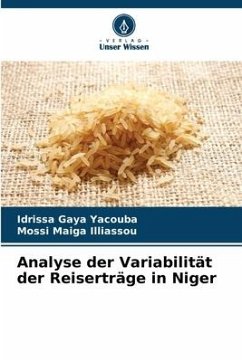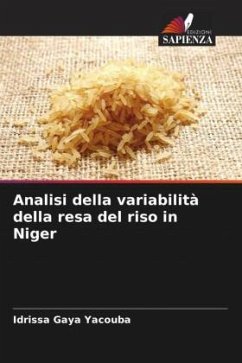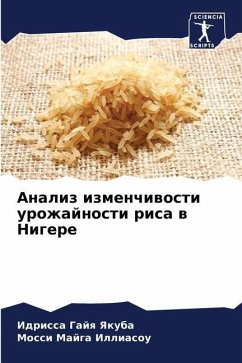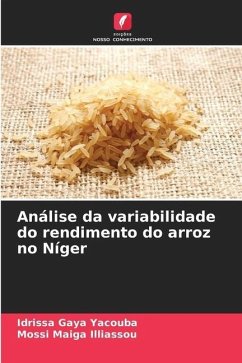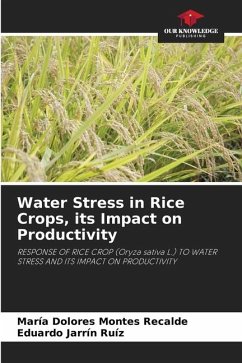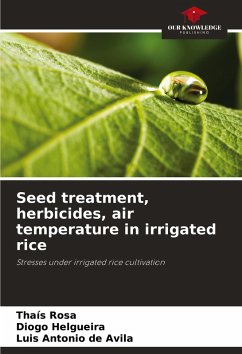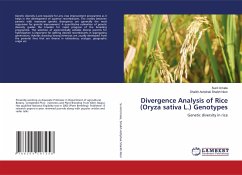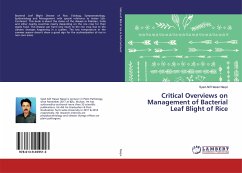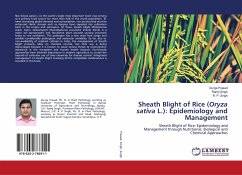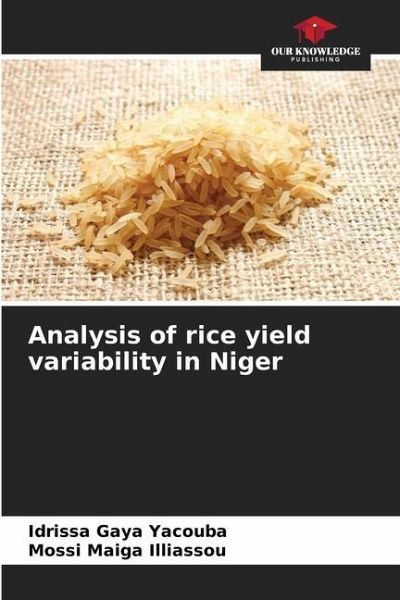
Analysis of rice yield variability in Niger
Versandkostenfrei!
Versandfertig in 6-10 Tagen
27,99 €
inkl. MwSt.

PAYBACK Punkte
14 °P sammeln!
The main objective is to determine the factors that lead to differences in yields between rice varieties according to the cultivation practices of producers. The study took place in Niger on the hydro-agricultural developments of the river valley. To achieve this objective, the study was based on a survey phase based on a questionnaire integrated into a smartphone, and another observation phase, based on the installation of plots and sub-plots in the farmers' fields in order to collect information on rice cultivation practices and to evaluate the yields obtained. The results showed that rice c...
The main objective is to determine the factors that lead to differences in yields between rice varieties according to the cultivation practices of producers. The study took place in Niger on the hydro-agricultural developments of the river valley. To achieve this objective, the study was based on a survey phase based on a questionnaire integrated into a smartphone, and another observation phase, based on the installation of plots and sub-plots in the farmers' fields in order to collect information on rice cultivation practices and to evaluate the yields obtained. The results showed that rice crop management varies not only from one plot to another, but also from one farmer to another, with consequences for yield. Significant reductions in yield differences of 53-22% were obtained depending on variety, herbicide rate applied, and failure to observe plant ages at transplanting.



